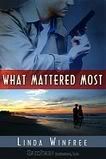Revision, Revisited
One of the most difficult skills I teach in my English classroom is the concept of revision. Teenagers hate to revise. They want to write one draft, call it done and turn it in, confident that it's the most perfect piece of writing ever. However, Evil English Overlord that I am, I require at least one round of revisions, I have to be able to see the revisions, and I teach several strategies for revising throughout the year and allow them to choose the method that works best for them.
Now, I can require them to revise, but I, of course, can't really control the depths of those revisions. Basically, I can divide my students into two groups: shallow revisers and deep revisers.
The shallow revisers go through a draft, change a couple of words, mark some spelling issues, place a couple of commas. The paper doesn't really change. They don't grow as writers.
The deep revisers delve into the draft, marking paragraphs to be moved or deleted, added to or changed. Their papers bleed with flourescent pink or sparkly purple ink. The papers transform. They grow.
I thought when I was in my writerly mode that I was a deep reviser. I've taken my second novel, Hold on to Me, and rewritten that sucker more than once.
Or rather, I thought I'd rewritten it.
I wrote several different endings, searching for the right one. I deleted the first chapter completely, cut a couple of major scenes that dragged at the pacing, reworked the first love scene, tried to deepen the internal conflict, made surface revisions based on my former agent's suggestions.
Sounds like deep revisions, right?
Wrong.
I was still playing in the shallow end, although all of that forced me to look at the manuscript, changed the manuscript, strengthened the manuscript. What it didn't do was fix what was inherently wrong with the story.
What it didn't do was fix the problems that have garnered rejections from eight major publishing houses.
Those rejections and the possiblity of still being able to sub the MS myself to a couple of other places before I run out of options with it have me standing on the shore of revising once more. This time, however, I'm looking way out to the depths of revising -- taking the book apart at its core and fixing what's wrong.
I'm scared to death. The easy thing would be to say, "Let the book die a gentle death. Move on to something new."
But the easy thing isn't always the best thing. If I commit to making this book better, I'm going to learn more about writing. I'm going to grow as a writer. Will I sell the revised version? Maybe. Maybe not.
But sometimes, it's not all about selling. Sometimes, it's about working to perfect the craft.
The year before last, I had the pleasure of having my students interact with Georgia author Janice Daugharty. She wrote for ten years before she sold her first novel, and when she talked with my students, she told them that the most important tool a writer had was revision. Not to be afraid to take something apart and rework it. I knew through talking with a fellow writer who's had the pleasure of having Daugharty read his work that she wasn't just talking the talk -- she walks the revision walk. I smiled and nodded in a teacherly fashion as Daugharty encouraged my kids to dive into the deep end of revising.
I'm just now beginning to see what she meant by that. Rewriting HOTM is scary to me. I'm afraid I'll fail. I'm afraid I'll do it and still not sell the book.
But.
If I don't do it, I've already failed. If I don't do it, I'm selling myself short as a writer -- I'm denying myself growth that I think is at the core of the writing issues I've had the last year. Maybe that doesn't make sense to anyone but me, but I think of Fitzgerald taking Gatsby apart and I wonder what American Literature would be missing if he'd merely moved on to another work without looking back at what he'd already done. I think about my students who never move beyond a certain level of writing because they don't want to do more than get their toes wet.
I'm ready to get more than my toes wet. I'm ready to take a deep breath and dive into the waves, strike out for the deep end.
If I don't sell the book, that's not failure. That's life.
If I don't stop and examine the mistakes I've made in writing, that's failure.
Worse.
That's self-sabotage.
So . . . I'm leaving the shore and heading into the water. Anyone for a swim?
Now, I can require them to revise, but I, of course, can't really control the depths of those revisions. Basically, I can divide my students into two groups: shallow revisers and deep revisers.
The shallow revisers go through a draft, change a couple of words, mark some spelling issues, place a couple of commas. The paper doesn't really change. They don't grow as writers.
The deep revisers delve into the draft, marking paragraphs to be moved or deleted, added to or changed. Their papers bleed with flourescent pink or sparkly purple ink. The papers transform. They grow.
I thought when I was in my writerly mode that I was a deep reviser. I've taken my second novel, Hold on to Me, and rewritten that sucker more than once.
Or rather, I thought I'd rewritten it.
I wrote several different endings, searching for the right one. I deleted the first chapter completely, cut a couple of major scenes that dragged at the pacing, reworked the first love scene, tried to deepen the internal conflict, made surface revisions based on my former agent's suggestions.
Sounds like deep revisions, right?
Wrong.
I was still playing in the shallow end, although all of that forced me to look at the manuscript, changed the manuscript, strengthened the manuscript. What it didn't do was fix what was inherently wrong with the story.
What it didn't do was fix the problems that have garnered rejections from eight major publishing houses.
Those rejections and the possiblity of still being able to sub the MS myself to a couple of other places before I run out of options with it have me standing on the shore of revising once more. This time, however, I'm looking way out to the depths of revising -- taking the book apart at its core and fixing what's wrong.
I'm scared to death. The easy thing would be to say, "Let the book die a gentle death. Move on to something new."
But the easy thing isn't always the best thing. If I commit to making this book better, I'm going to learn more about writing. I'm going to grow as a writer. Will I sell the revised version? Maybe. Maybe not.
But sometimes, it's not all about selling. Sometimes, it's about working to perfect the craft.
The year before last, I had the pleasure of having my students interact with Georgia author Janice Daugharty. She wrote for ten years before she sold her first novel, and when she talked with my students, she told them that the most important tool a writer had was revision. Not to be afraid to take something apart and rework it. I knew through talking with a fellow writer who's had the pleasure of having Daugharty read his work that she wasn't just talking the talk -- she walks the revision walk. I smiled and nodded in a teacherly fashion as Daugharty encouraged my kids to dive into the deep end of revising.
I'm just now beginning to see what she meant by that. Rewriting HOTM is scary to me. I'm afraid I'll fail. I'm afraid I'll do it and still not sell the book.
But.
If I don't do it, I've already failed. If I don't do it, I'm selling myself short as a writer -- I'm denying myself growth that I think is at the core of the writing issues I've had the last year. Maybe that doesn't make sense to anyone but me, but I think of Fitzgerald taking Gatsby apart and I wonder what American Literature would be missing if he'd merely moved on to another work without looking back at what he'd already done. I think about my students who never move beyond a certain level of writing because they don't want to do more than get their toes wet.
I'm ready to get more than my toes wet. I'm ready to take a deep breath and dive into the waves, strike out for the deep end.
If I don't sell the book, that's not failure. That's life.
If I don't stop and examine the mistakes I've made in writing, that's failure.
Worse.
That's self-sabotage.
So . . . I'm leaving the shore and heading into the water. Anyone for a swim?







3Comments:
I think I'm ready for a spot on the beach towel. But I'll wave to you from the shore!!
Nope, my compulsive self won't allow it. Guess I'll be swimming with you.
Safe In Enemy Arms is in need of a rebuild. I've purchased some books on psychology to delve deeper into the psychopathic mind of my villain, I've done more research, I've read more articles on making characters deeper.
The whole thing will change...because once I change one character, the others with change as well. Therefore the plot will change.
God help me. But I can't not do it. It's a...um, yeah, compulsion.
My last big revision to Hiding In Plain Sight was a profound learning experience to me. My agent was thrilled with the changes. She said she was really, really impressed with the amount of work I'd put into it. So, I must be on the right path.
But, I have to admit, it's a painful path. Those deep revisions are beyond tedious. To me they feel somewhat like physical therapy--tortuous process that leads to strength, flexibility and comfort.
Good luck. You can do it.
I would rather move on to a new book than rewrite a book! Well that was my philosiphy until an editor requested a book I'd started, stopped, started again and then never finished the ending.
I've changed major things in the plot, refocused my attention on the ending and deepened the characters. I think I'm finally getting me feet wet in revisions.
Do I like revisions now? No! But I now know I can do them and it didn't kill me!
Happy revisioning!
>>I would rather move on to a new book than rewrite a book!
I agree AS LONG AS moving on doesn't mean ignoring writing weaknesses. No writing is wasted as long as we remember it's an ongoing learning process.
Post a Comment
<< Home